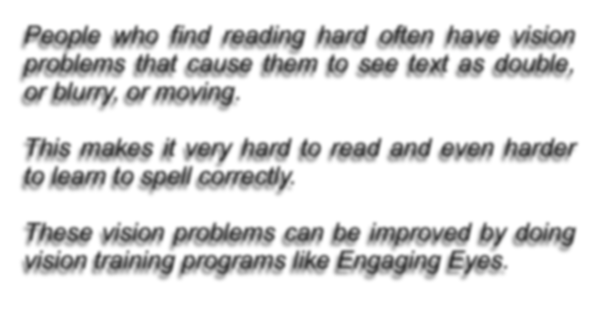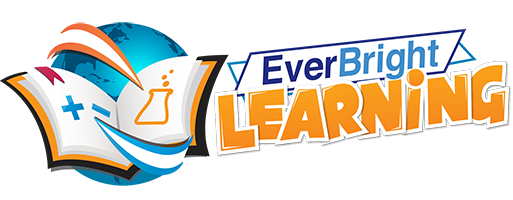
The latest study found that 98% of struggling readers have poor eye convergence. This means they can’t focus both eyes on the same letter and don’t ‘track’ across the page.
When we read, our eyes track across the page, from word to word. When struggling readers read, their eyes jump around the page, with both eyes looking at different letters. This makes reading almost impossible and causes eye strain/headaches.

When children with poor convergence read, each eye looks at a different letter. This may make words look blurry or letters appear to move as the brain alternates between images.
Students with poor convergence will find spelling hard. They don’t see the letters clearly when they read, so they can’t visualize the word later.
Comprehension is also difficult. Their brain is overloaded, trying to decipher what is seen. There’s very little processing power left to remember or understand it.
Poor convergence also causes erratic eye movements. Eyes wobble when reading, so they can’t track smoothly across the page.
How would you know if your child has poor eye convergence?
Children with poor convergence may:
-
Reverse ‘b’s and ‘d’s
-
Skip lines and words
-
Say that the letters move or are blurry
-
Read slowly
-
Have poor spelling
-
Have difficulty copying
-
Refuse to read out loud
-
Not understand what they have read
-
Get tired, headaches or sore eyes from reading
-
Need coloured overlays to read
Dyslexia Gold’s latest research tested eye convergence in children who are behind in reading. The results clearly show that this problem is widespread amongst struggling readers – 98% of them could not converge their eyes.
The great news is: eyes can be trained to converge using daily exercises. Dyslexia Gold has created an online program specifically designed for this called Engaging Eyes. Pupils play for 10 minutes a day for a few months.


I would like to know more about this. My son seems to be behind because he don’t want to read but he has lots of the systems listed.